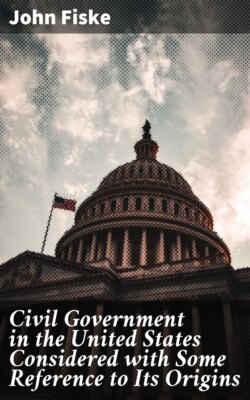Читать книгу Civil Government in the United States Considered with Some Reference to Its Origins - Fiske John - Страница 42
На сайте Литреса книга снята с продажи.
SUGGESTIVE QUESTIONS AND DIRECTIONS.
ОглавлениеTo the teacher. The object of this series of questions and suggestions is to stimulate reading, investigating, and thinking. It is not expected, indeed it is hardly possible, that each pupil shall respond to them all. A single question may cost prolonged study. Assign the numbers, therefore, to individuals to report upon at a subsequent recitation—one or more to each pupil, according to the difficulty of the numbers. Reserve some for class consideration or discussion. Now and then let the teacher answer a question himself, partly to furnish the pupils with good examples of answers, and partly to insure attention to matters that might otherwise escape notice.
1. Are there people who receive no benefit from their payment of taxes?
2. Are the benefits received by people in proportion to the amounts paid by them?
3. Show somewhat fully what taxes had to do with the French Revolution.
4. Show somewhat fully what taxes had to do with the American Revolution.
5. Give illustrations of the exercise of the right of eminent domain in your own town or county or state.
6. Do railroad corporations exercise such a right? How do they succeed in getting land for their tracks?
7. In case of disagreement, how is a fair price determined for property taken by eminent domain?
8. What persons are prominent to-day in the government of your own town or city? Of your own county? Of your own state? Of the United States?
9. Who constitute the government of the school to which you belong? Does this question admit of more than one answer? Has the government of your school any power to tax the people to support the school?
10. What is the difference between a state and the government of a state?
11. Which is the more powerful branch of the English Parliament? Why?
12. Is it a misuse of the funds of a city to provide entertainments for the people July 4? To expend money in entertaining distinguished guests? To provide flowers, carriages, cigars, wines, etc., for such guests?
13. What is meant by subordinating public office to private ends? Cite instances from history.
14. What histories have you read? What one of them, if any, would you call a "child's history," or a "drum and trumpet" history? What one of them, if any, has impressed any lessons upon you?
15. Mention some principles that history has taught you.
16. Mention a few offices, and tell the sort of intelligence that is needed by the persons who hold them. What results might follow if such intelligence were lacking?
